The Best Cruise Lines
Overwhelmed with cruise line options? Some are certainly better than others — and these ones are the best.

Many or all of the products on this page are from partners who compensate us when you click to or take an action on their website, but this does not influence our evaluations or ratings. Our opinions are our own.
Cruising isn’t just back — it’s booming. A record-breaking 19 million Americans are expected to take an ocean cruise in 2025, according to AAA. That marks a 4.5% jump from 2024 and caps off a third straight year of record cruise passenger volume.
This growth outpaces even the hotel industry, and demand isn’t slowing down. Passenger volume in 2025 is expected to surpass pre-pandemic levels by 34%. Travelers are catching on that you can visit multiple destinations, only unpack once and partake in included food and entertainment along the way.
Get the 'Cheat Codes' to Cheaper Travel
Unlocking the secret to saving a ton on travel is easier than you think. 📤 Our free newsletter shows you how in 5 min. or less.

But with dozens of cruise lines out there, which one is right for you? Whether you’re chasing the best food, the best value or the most family-friendly experience, here’s NerdWallet’s guide to the best cruise lines in 2025, broken down by what matters most.
On this page
- Best overall cruise line: Norwegian Cruise Line (NCL)
- Best cruise line for families: Royal Caribbean International
- Best cruise line for foodies and older adults: Princess Cruises
- Best cruise lines for luxury travelers: Regent Seven Seas Cruises
- Best value cruise line: MSC Cruises
- Why some other cruise lines didn’t make the cut
- How to choose the best cruise line for your next trip
Best overall cruise line: Norwegian Cruise Line (NCL)
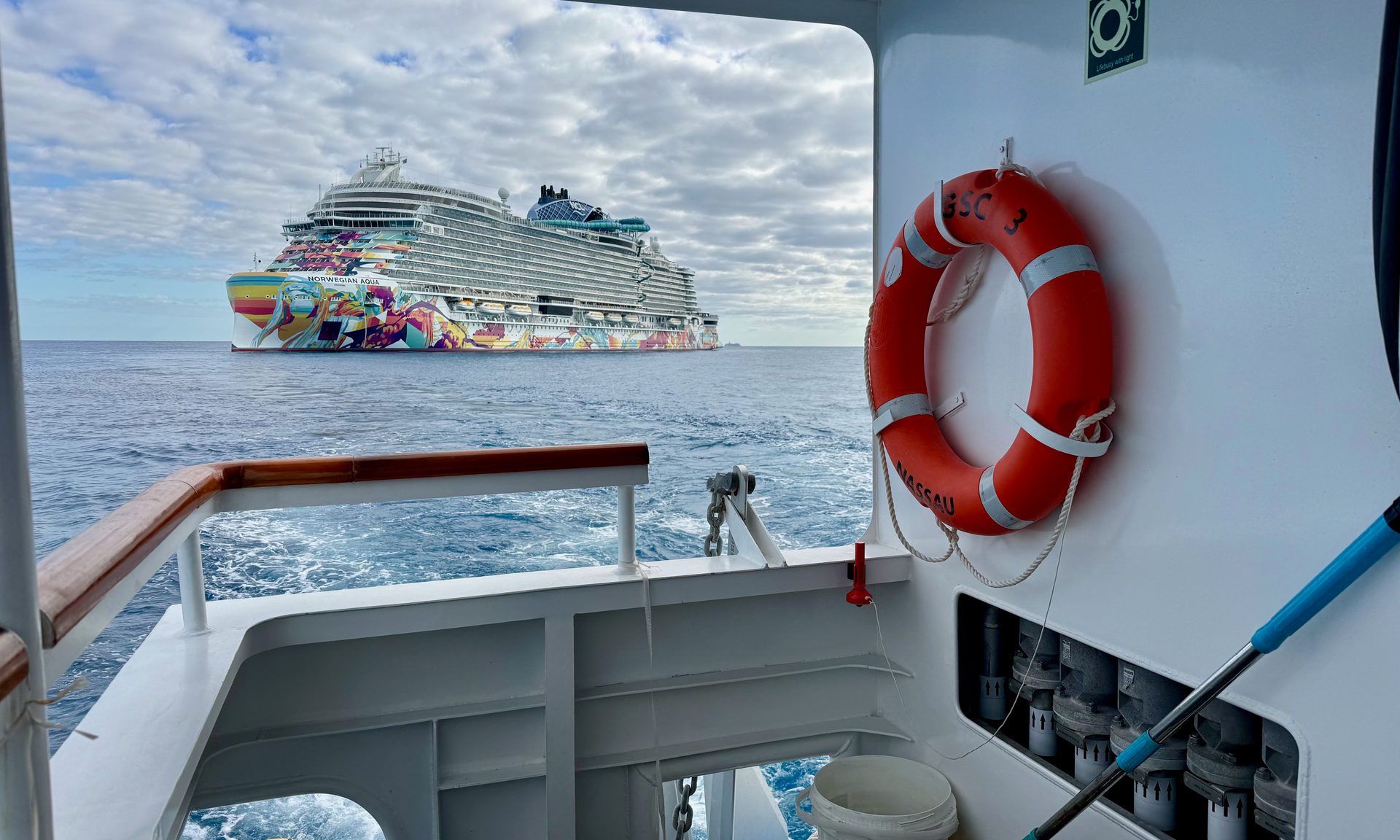
Why it wins: Flexibility, entertainment and thoughtful accommodations for every type of traveler (including families, luxury-minded couples and singles) — all at a competitive price.
Norwegian Cruise Line tops our list as the most balanced, all-around cruise line. Its Freestyle Cruising concept removes the rigid schedules and dress codes that can make cruising feel stuffy. You eat when and where you want, whether that’s in a specialty sushi bar, the buffet, or a Michelin-inspired steakhouse.
NCL has long been a pioneer, including developing the cruise industry’s first private island (that's Great Stirrup Cay in the Bahamas).
NCL also shines in entertainment. On its newest Prima-class ships, you’ll find Broadway-caliber shows like Beetlejuice and Cirque du Soleil-style productions with acrobatics and illusions. While Royal Caribbean's newest ships might have the flashiest AquaDome stunts, NCL spreads high-quality entertainment consistently across its fleet, making it less dependent on sailing a brand-new ship to get a world-class experience.
In recent years, NCL has solidified its spot as a leader in cruise innovation with its new Prima-class ships. These include vessels like the Norwegian Prima and Norwegian Aqua which stand out for their size and offerings. The Norwegian Aqua's Slidecoaster is the first hybrid waterslide-rollercoaster at sea, and its Indulge Food Hall offers perhaps the best casual meal you can eat anywhere at sea — without a specialty dining upcharge.
Where NCL really pulls ahead is solo travel. Its Studio cabins and exclusive Studio Lounges allow single cruisers to avoid single supplements, while still enjoying community. That’s something no other mainstream line matches.
Food and beverages on NCL

The line's hallmark Freestyle Cruising philosophy eliminates many of the hassles of traditional cruises. No assigned dining times. No strict dress codes. You eat when, where and how you want. Of course every ship varies in its offerings, but all the food is excellent — from sushi bars to steakhouses to buffets.
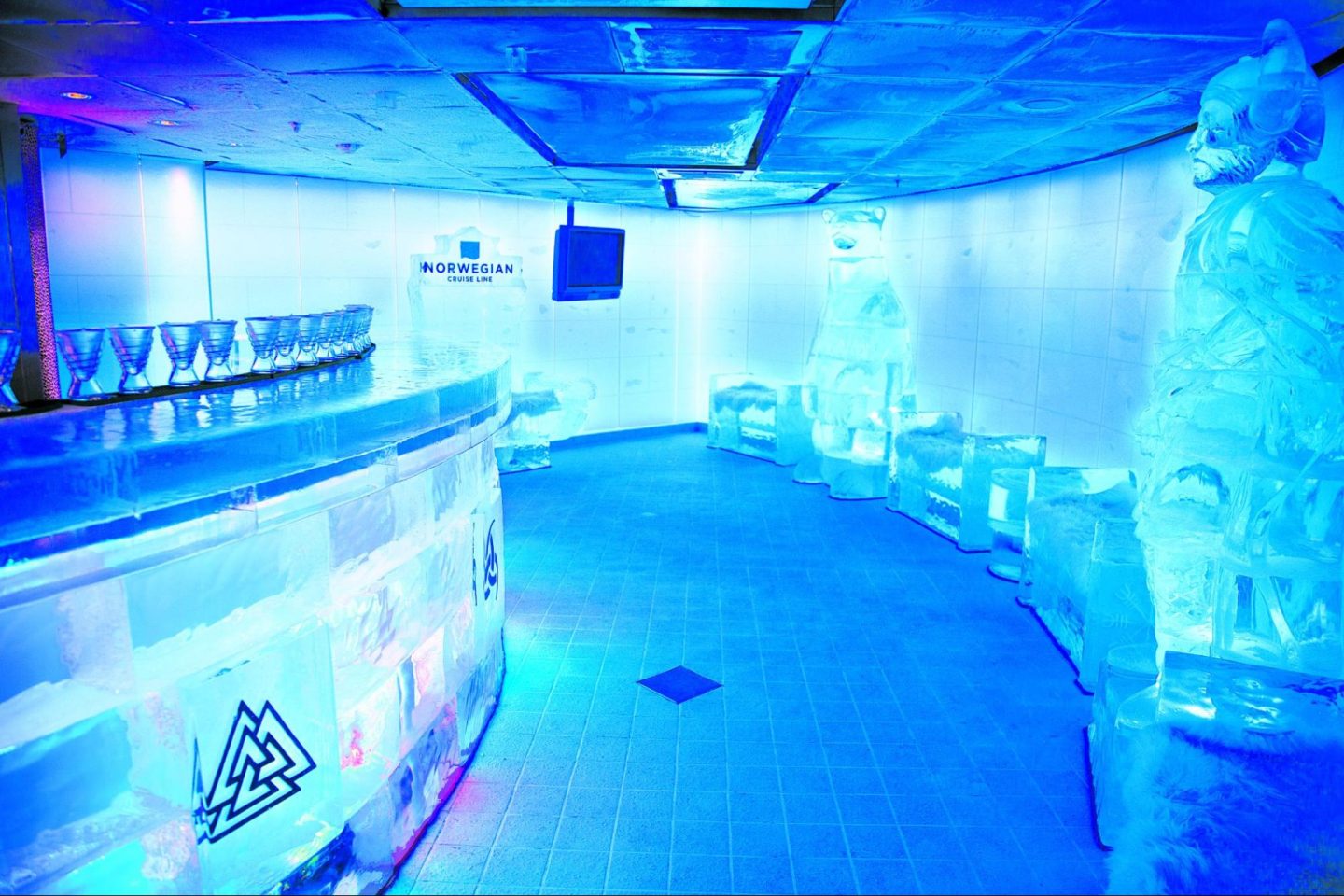
Beverage options are clever. Don't misss the Skyy Vodka Ice Bar, found on a few Norwegian Cruise Line ships including Norwegian Breakaway, Norwegian Getaway and Norwegian Epic. Yes, the bar is made entirely from ice.
Things to do on NCL
Want entertainment? You’ll find Broadway-caliber shows like Beetlejuice and Jersey Boys. "Revolution: A Celebration of Prince" on the Norwegian Aqua is one of the best shows at sea (though it's not exactly kid-friendly). It's also famous for its "Elements: The World Expanded," which is similar to a Cirque du Soleil show with dancing and acrobatics, plus some illusions, and is offered on multiple NCL ships.
Most ships also have some combination of water parks, live music and vibrant nightlife, offering lots to do to stay entertained all hours of the day.
Great for single travelers
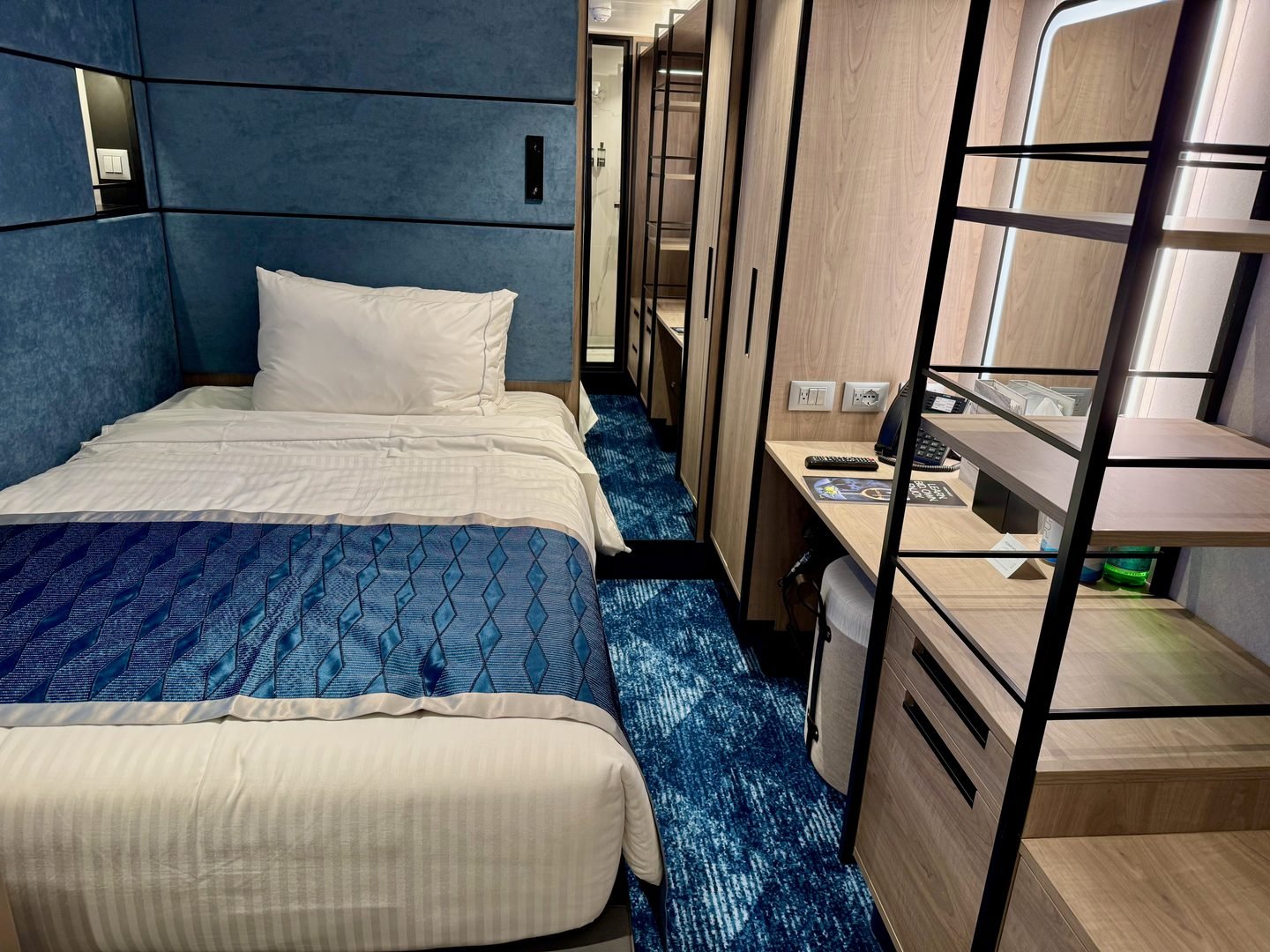
For solo travelers, NCL leads the industry. Their Studio staterooms, found on most of their newer ships, are compact, smartly designed cabins for one — with no single supplement. These staterooms are an average of 100 square feet with a full-size bed and separate sink and shower areas.
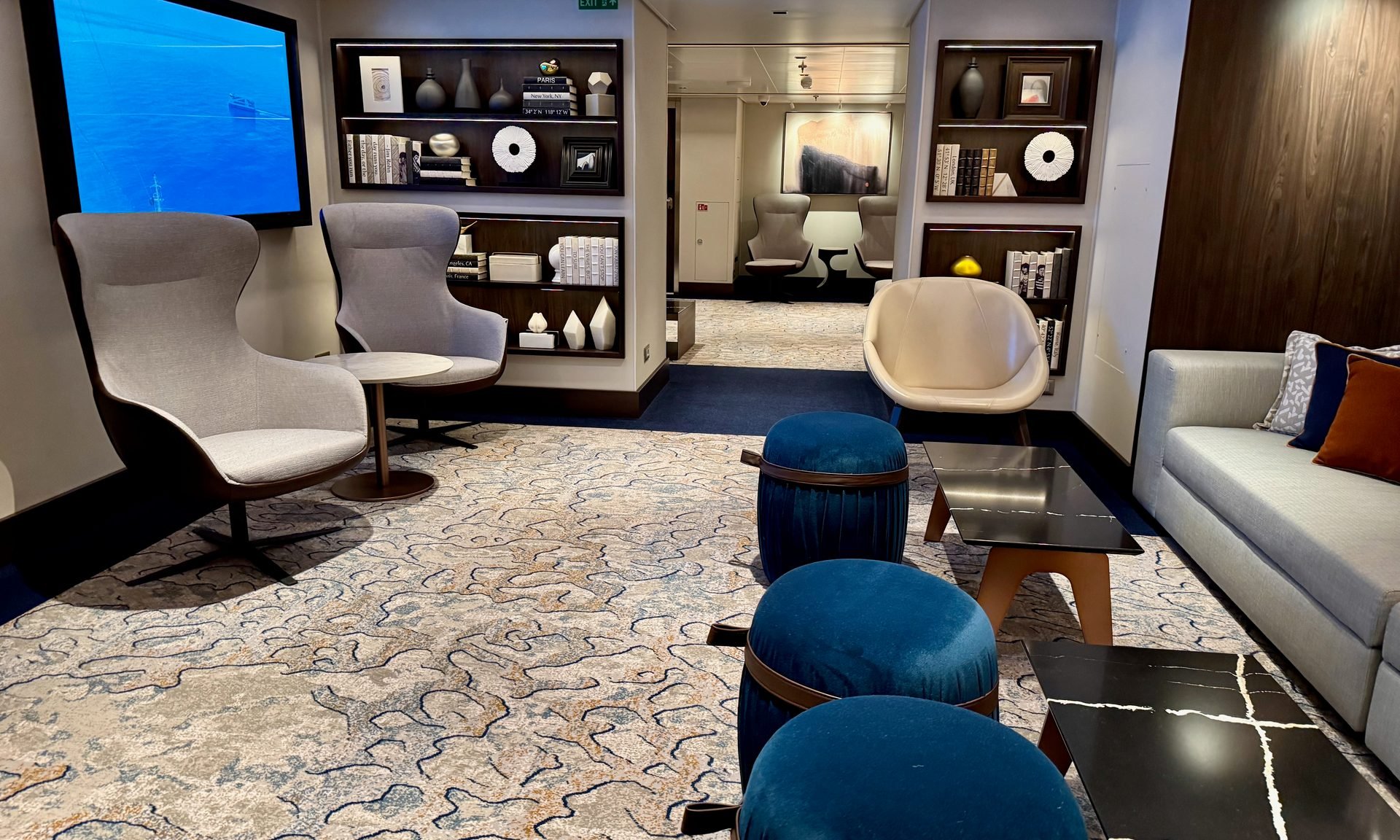
Studio guests also enjoy access to an exclusive Studio Lounge, where you can mingle, grab a coffee or book a group shore excursion with other solo travelers. While other lines now dabble in solo cabins, Norwegian still offers the widest selection and best amenities for single travelers, especially those who want to be social.
The best NCL ships
NCL's newer ships — like the Norwegian Aqua and Norwegian Prima — are redefining modern cruising with elevated spaces through touches like more upscale decor, as well as more amenities. These range from bougie infinity pools to quirky food halls to family-friendly attractions like the Aqua Slidecoaster (found on the Norwegian Aqua). Even on the newer ships, prices remain accessible, especially compared with luxury lines or more restrictive, traditional ones.
While some lines excel in one niche, NCL is the best all-around choice: great for solo travelers, couples, families and multigenerational groups alike. With worldwide itineraries, diverse onboard offerings and a welcoming vibe for all kinds of cruisers, Norwegian is the most versatile cruise line sailing today.
Drawbacks when sailing with NCL
Families will still find more kid-focused attractions on Royal Caribbean. NCL has slides and go-karts, but Royal’s surf simulators, aquaparks, and character tie-ins are better suited to younger cruisers.
Food is good, but Princess is simply stronger in culinary partnerships and destination-inspired menus.
NCL has private enclaves like The Haven for luxury-minded travelers, but Regent Seven Seas outpaces it in all-inclusive luxury.
Best cruise line for families: Royal Caribbean International
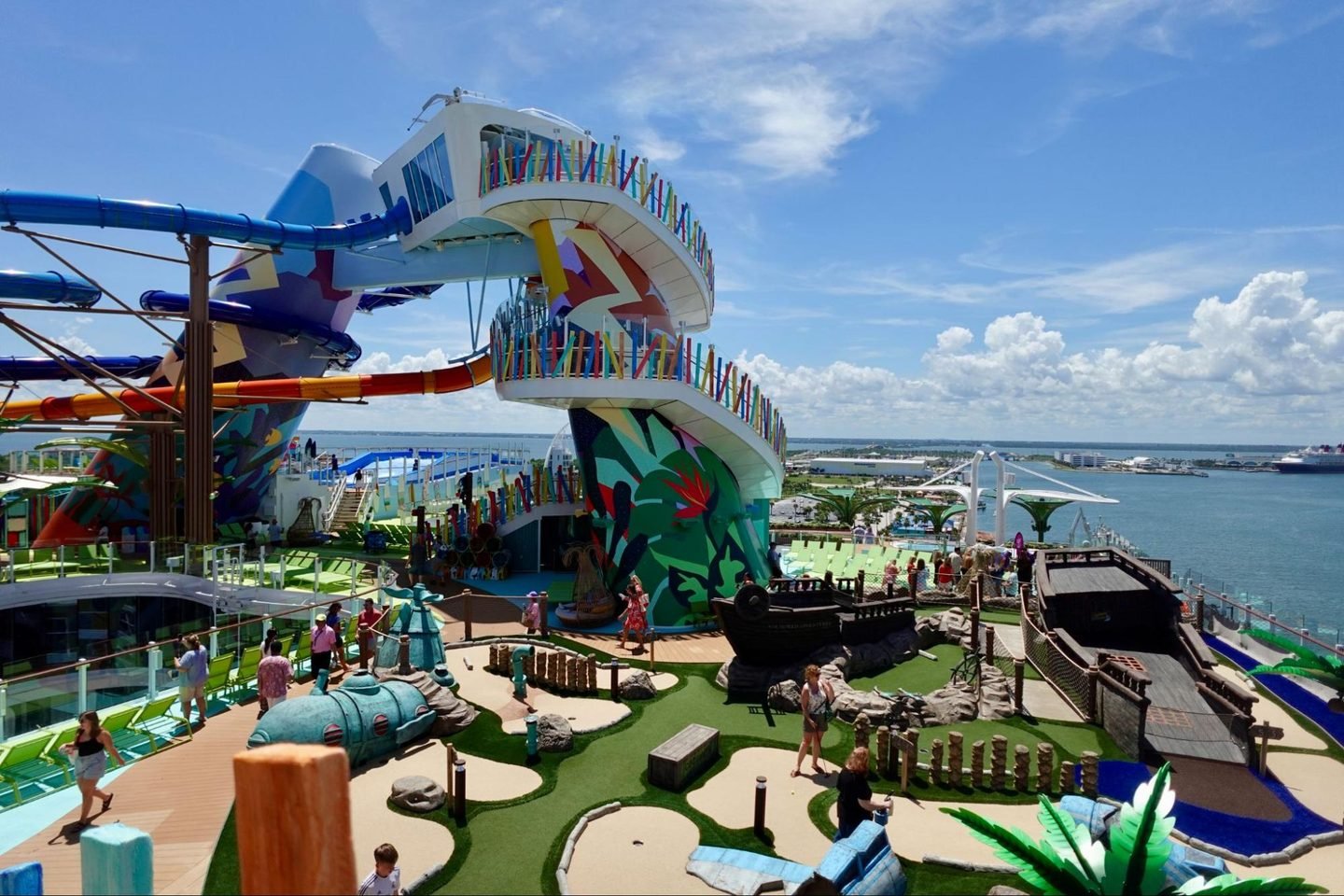
Why it wins: Bigger, bolder ships that rival Disney — without the price tag.
Royal Caribbean has long been known for pushing boundaries, and its latest ships, including Icon of the Seas and Star of the Seas, set a new bar for family-friendly cruising.
These ships are floating theme parks, with multiple waterparks, surf simulators, rock climbing walls, and even ice rinks — all included in your base fare. Entertainment is equally impressive: Broadway musicals like Back to the Future share the stage with Cirque-style stunt shows in the AquaDome, while comedy clubs and live music venues keep adults entertained too.
Compared to Disney, Royal Caribbean delivers a nearly identical level of kid-friendly magic — but at a fraction of the price. Where Disney now charges extra for things like character dining and even beignets at themed bars, Royal bundles much of its family entertainment into the cruise fare.
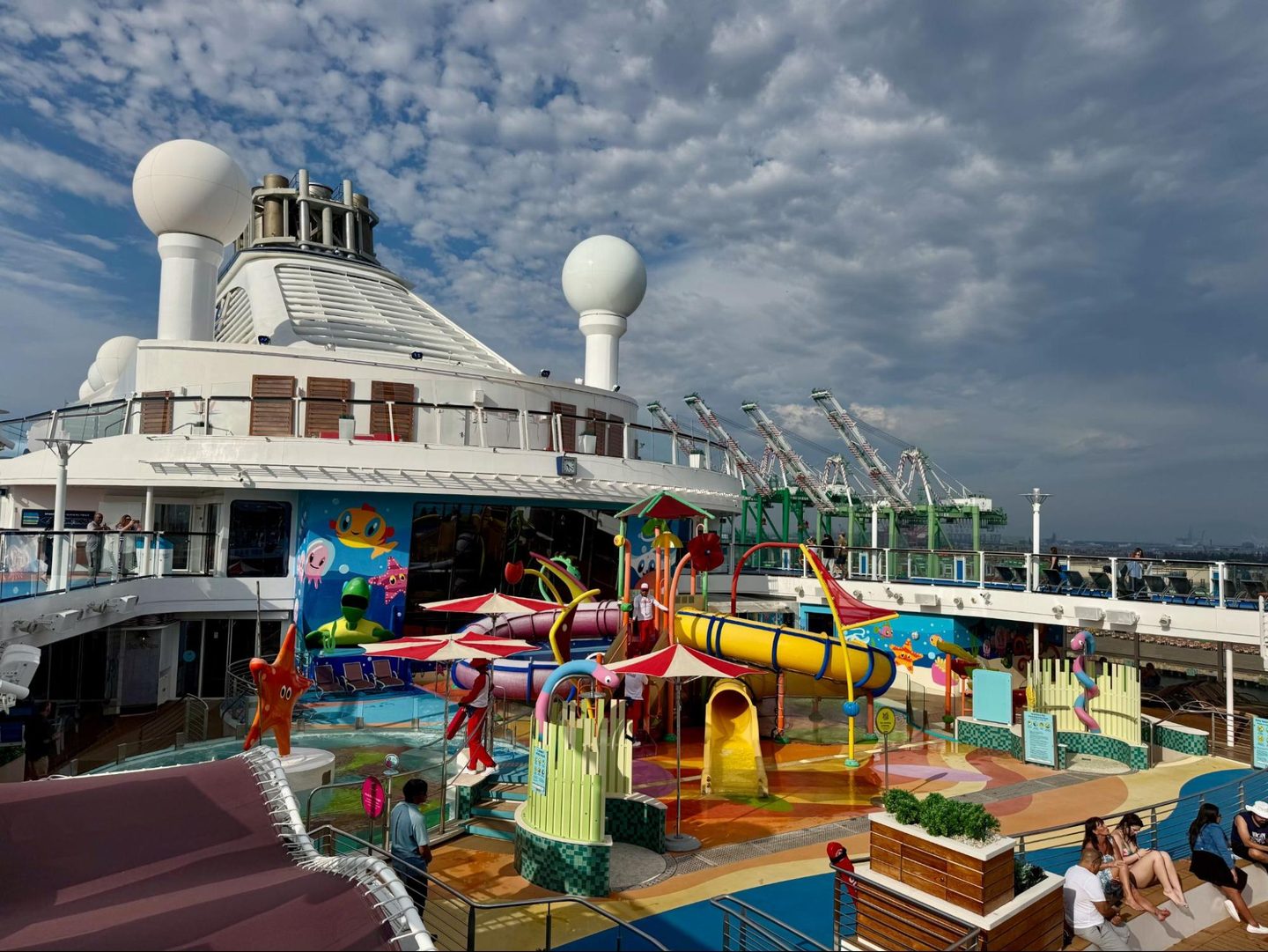
Now older ships like those in the Quantum class are much smaller (meaning less to do), without the devotion to fantastical design — and slightly lesser-quality dining. But that's also reflected in the price. Two adults could sail for less than $3,000 on seven-night Caribbean sailings on an older ship like the Ovation of the Seas (and even less than $800 for a three-night sailing). The value is impossible to beat.
Food and beverages on Royal Caribbean

Royal Caribbean’s dining program blends traditional cruise dining (with set-time main dining rooms) and modern, specialty options. Included options are abundant, ranging from buffets to pizza counters, but the brand’s specialty restaurants add variety for families who want a splurge. Steakhouses, sushi bars and Johnny Rockets-style diners are common across the fleet.
On its newest ships, Royal has invested heavily in casual, family-friendly dining variety. — a very welcome shift. For example, Icon of the Seas introduced the Surfside neighborhood, a space dedicated to families with young children — complete with kid-sized dining venues and casual eateries.

Specialty dining, however, can get pricey quickly, making dining packages a popular choice for families.
Drink packages, which include soda, mocktails, and cocktails, are also widely used. For families, Royal’s kid drink package (unlimited soda and juices) can be worth the add-on, given the base fare typically only covers water, tea, basic juices and lemonade.
Entertainment on Royal Caribbean
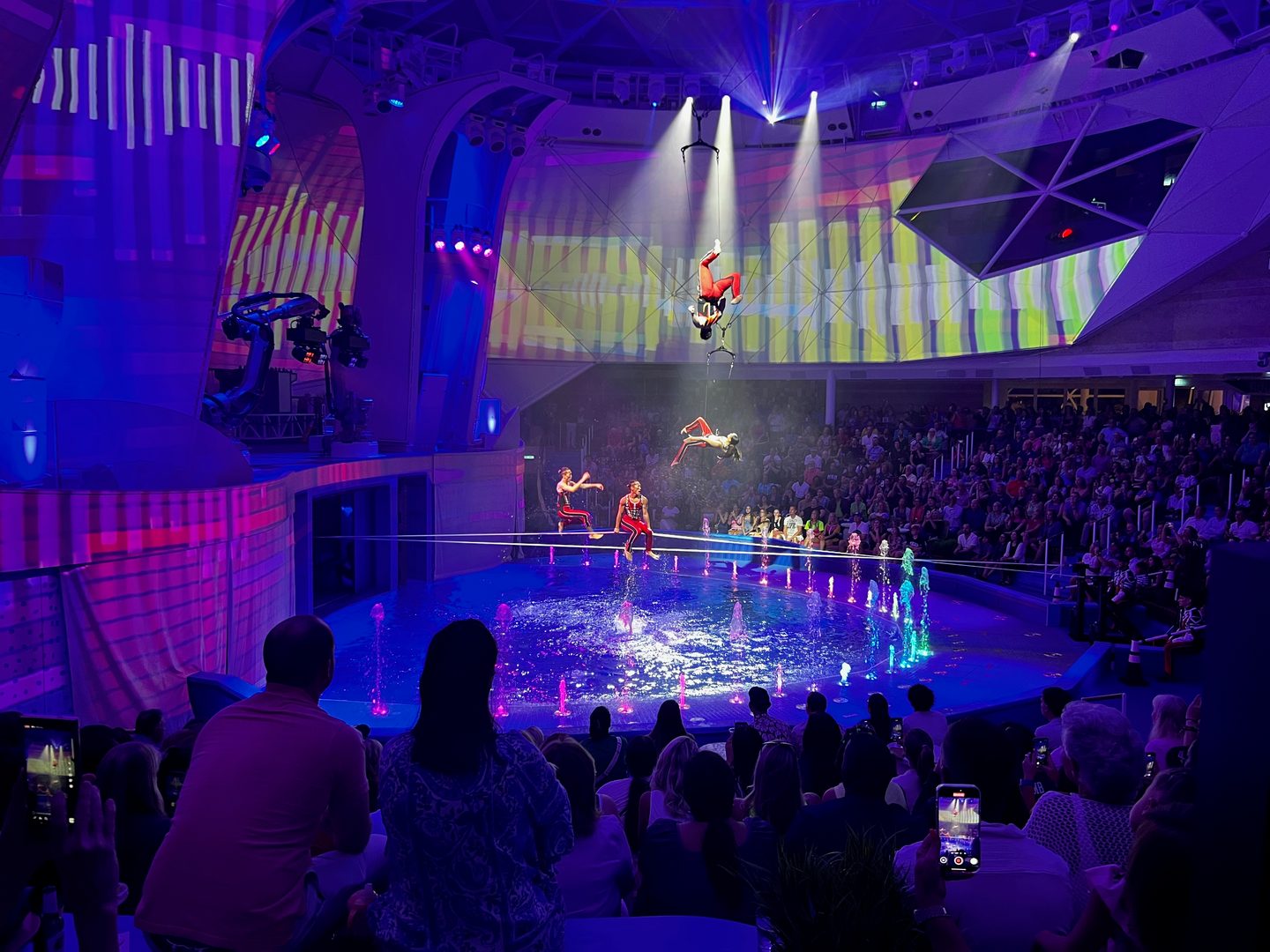
Entertainment is where Royal Caribbean truly shines. The AquaDome on Icon and Star of the Seas transforms into a theatrical space for jaw-dropping stunt shows that mix high diving, synchronized swimming, slacklining, and aerial acrobatics. It’s Cirque du Soleil at sea, included in the fare.
Royal is also one of the only cruise lines offering full-scale ice-skating shows on real rinks. Add in Broadway musicals like Back to the Future: The Musical (a slightly-shortened but still dazzling version of the Broadway hit), live comedy, karaoke and cover bands, and there’s never a dull night.
Where Disney once had the monopoly on “wow” entertainment at sea, Royal Caribbean has caught up — and in some ways surpassed it — especially given the prices.
Accommodations
Royal’s staterooms run the gamut from budget-friendly interior cabins to jaw-dropping suites. Family-friendly layouts often include split bathrooms, sofa beds, and extra storage, making them easier for parents to manage. On Icon of the Seas, new family suites even feature slide entrances and kid-focused designs.
Drawbacks when sailing with Royal Caribbean
There are just a few considerations to make before booking a Royal Caribbean ship.
Consistency: Royal’s best experiences are concentrated on its newest mega-ships. Sail an older vessel, like one of its Quantum-class ships, and the experience can feel dramatically different. NCL’s offerings are more consistent across its fleet.
Solo and adult travelers: While great for families, Royal doesn’t cater as well to singles or couples seeking a quieter atmosphere. Crowds and noise are part of the Royal brand.
Flexibility: Royal is still more structured around set dining times and formal nights. NCL’s Freestyle dining offers more flexibility.
Why didn't Disney win out here?
For years, Disney Cruise Line was the gold standard for families. But with rising costs and increasing upcharges (we don't like the extra charge for beignets at a "Princess and the Frog"-themed bar), Disney cruises can easily price out families. Royal Caribbean offers equally high-quality family experiences — colorful, imaginative, and action-packed — at a fraction of the cost.
Royal Caribbean is the clear winner for multigenerational families who want all-day activities, cutting-edge entertainment, and kid-approved thrills without the Disney price tag. For many families, it’s the best value-to-experience ratio in the industry.
Best cruise line for foodies and older adults: Princess Cruises
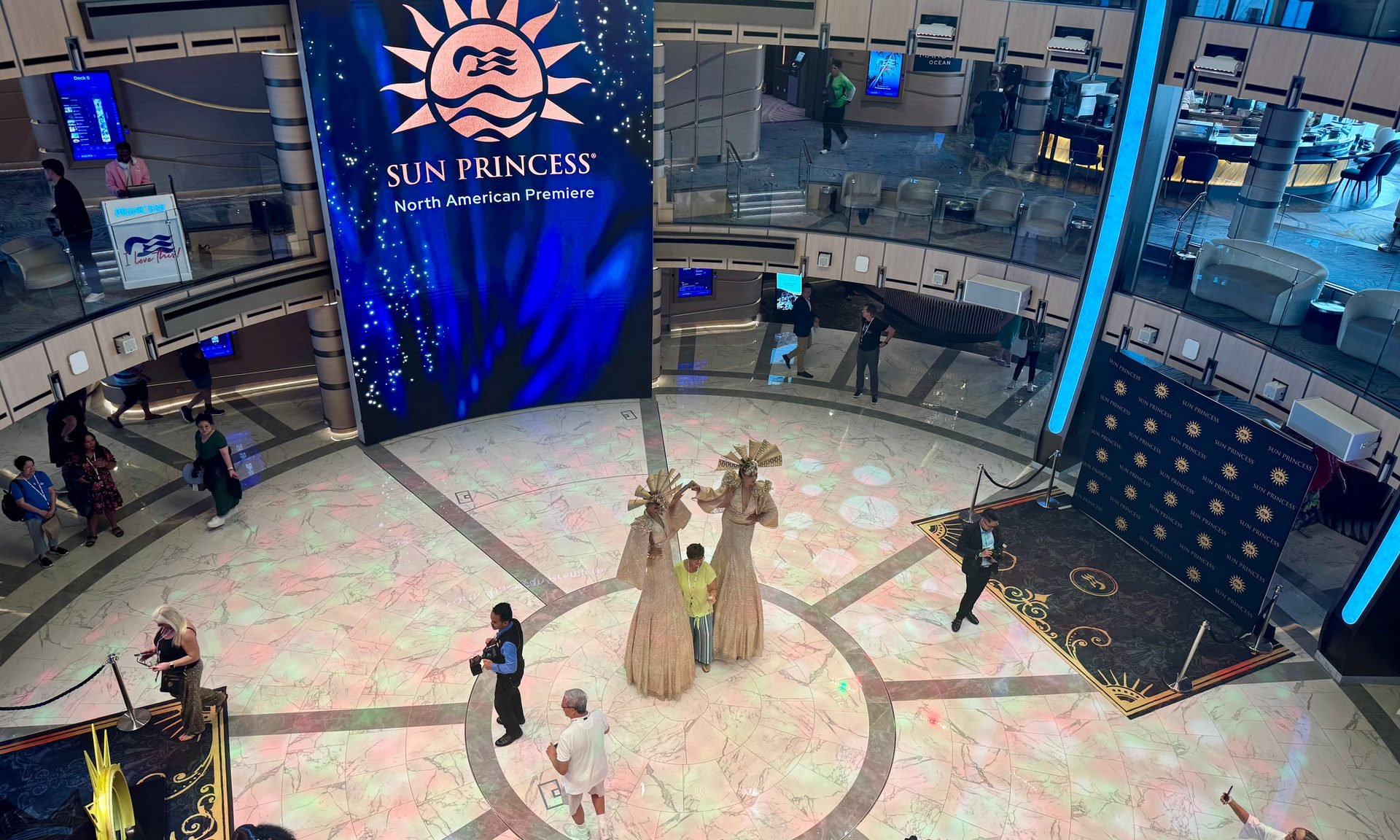
Why it wins: Elevated dining at sea with international flavors — and tons of celebrity chef endorsements.
Princess Cruises is a titan in the large cruise category, offering an impressive combination of global reach, innovative amenities and luxurious experiences. But Princess is less about the high-energy thrills and more about quiet elegance.
Here you won't find water parks and rock walls. But you will find the best food of any major cruise line.

Princess Cruises has leaned heavily into celebrity chef partnerships to elevate its culinary offerings and differentiate itself in the large-ship cruise category. Among the standout collaborations is Tyra Banks’ SMiZE & Dream ice cream, served with a hidden "surprise" cookie dough truffle at the bottom of each cup. Pizza lovers can indulge in creations by Tony Gemignani, a 13-time World Pizza Champion whose hand-tossed pies are served fresh at Alfredo’s Pizzeria and Gigi’s. For seafood, Chef Rudi Sodamin’s The Catch by Rudi offers upscale, ocean-inspired dishes.
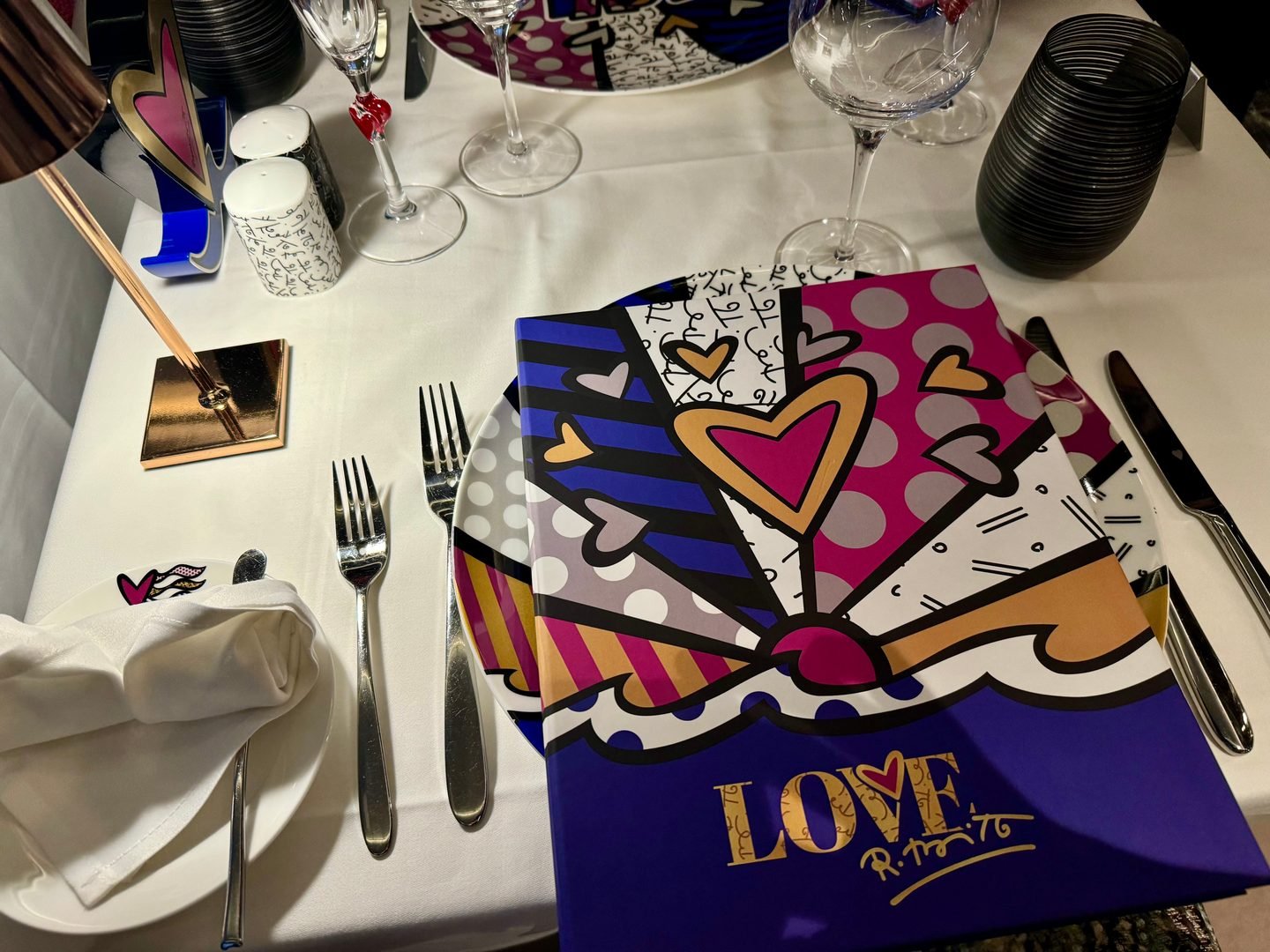
On the newest ship, Sun Princess, you’ll find Love by Britto, a seven-course dining experience that mixes art, romance, and aphrodisiac-inspired dishes — the first of its kind on a mainstream cruise ship.
It doesn’t stop there. Princess partners with renowned chefs and offers cuisine inspired by the regions you sail to. Think fresh Alaska salmon on Alaska cruises or Mediterranean classics in Europe. For more casual dining, you’ll find everything from sushi to pizza to poolside burgers — all done better than your average buffet fare.
What to expect when cruising with Princess
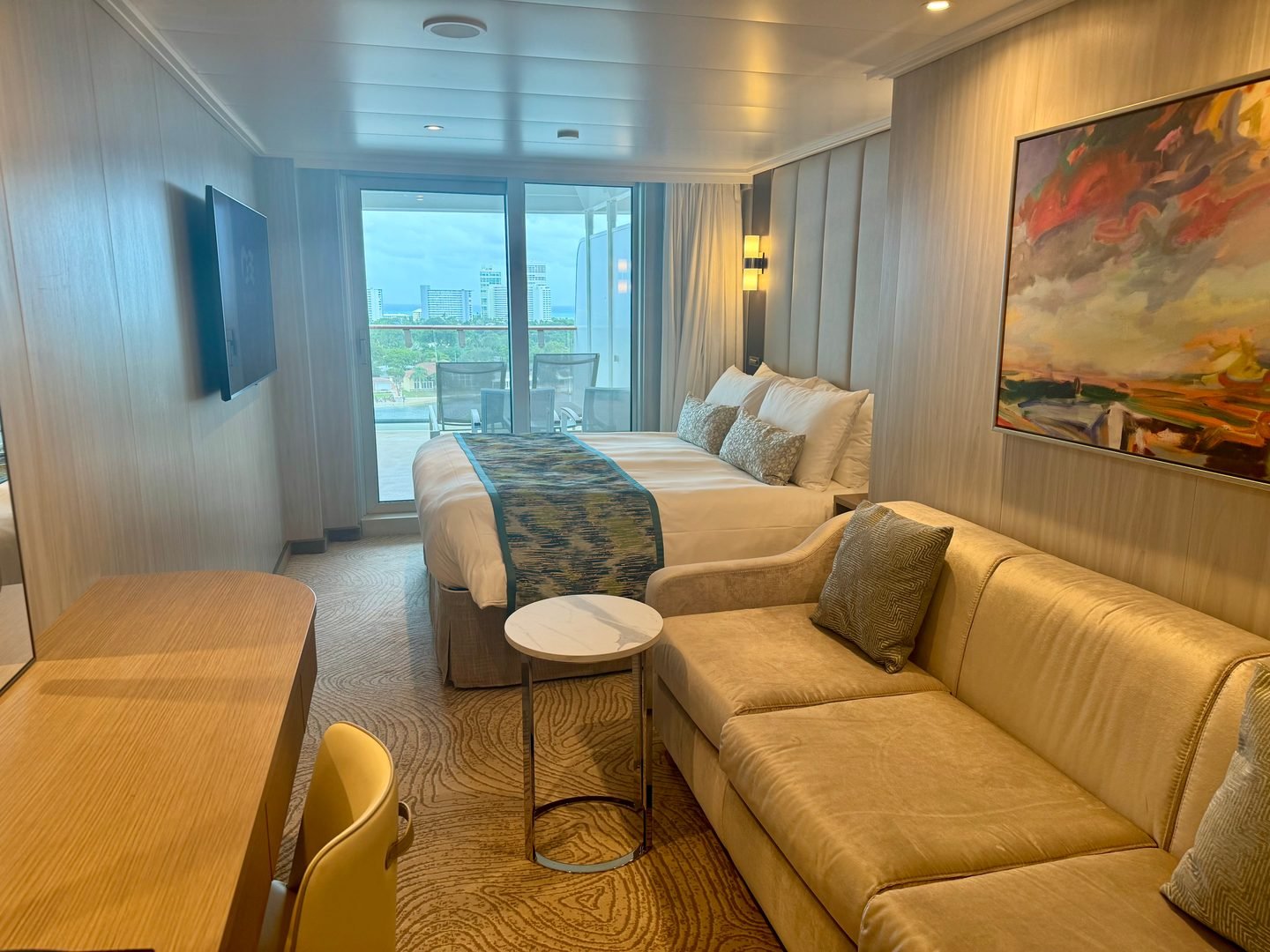
For what it's worth, there is more to Princess than just the food. The cruise line is renowned for its innovative features, such as the affordable veranda cabins it pioneered in the 1980s, making balcony views accessible to more travelers. Today, it boasts one of the highest percentages of balcony cabins in the industry. Whether or not you have a balcony room, all cabins are well-designed and space efficient.
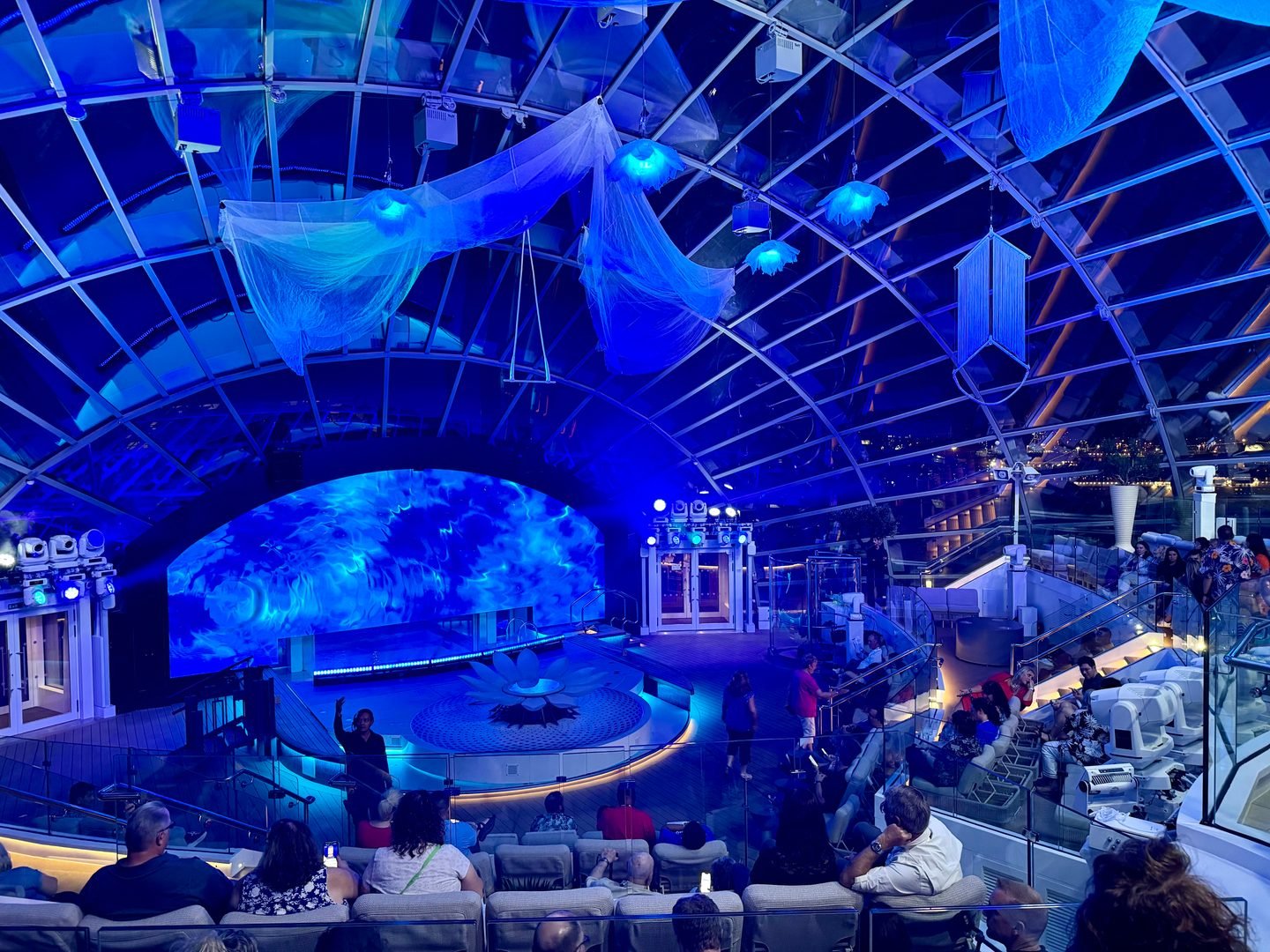
Besides the balcony design, Princess has other sorts of architectural innovations.
Its newest line, the Sun Princess, launched in late 2024 with all sorts of unique features and architectural marvels that make it tough to want to leave the ship even at port. The ship introduces a completely new layout with more open spaces that break the mold of traditional cruise design. At its heart is The Sphere, a glass-enclosed, multi-deck atrium that floods the ship’s central hub with natural light — and doubles as an entertainment venue. Another standout is The Dome, which transforms from a serene indoor pool by day into a theatrical performance space by night.
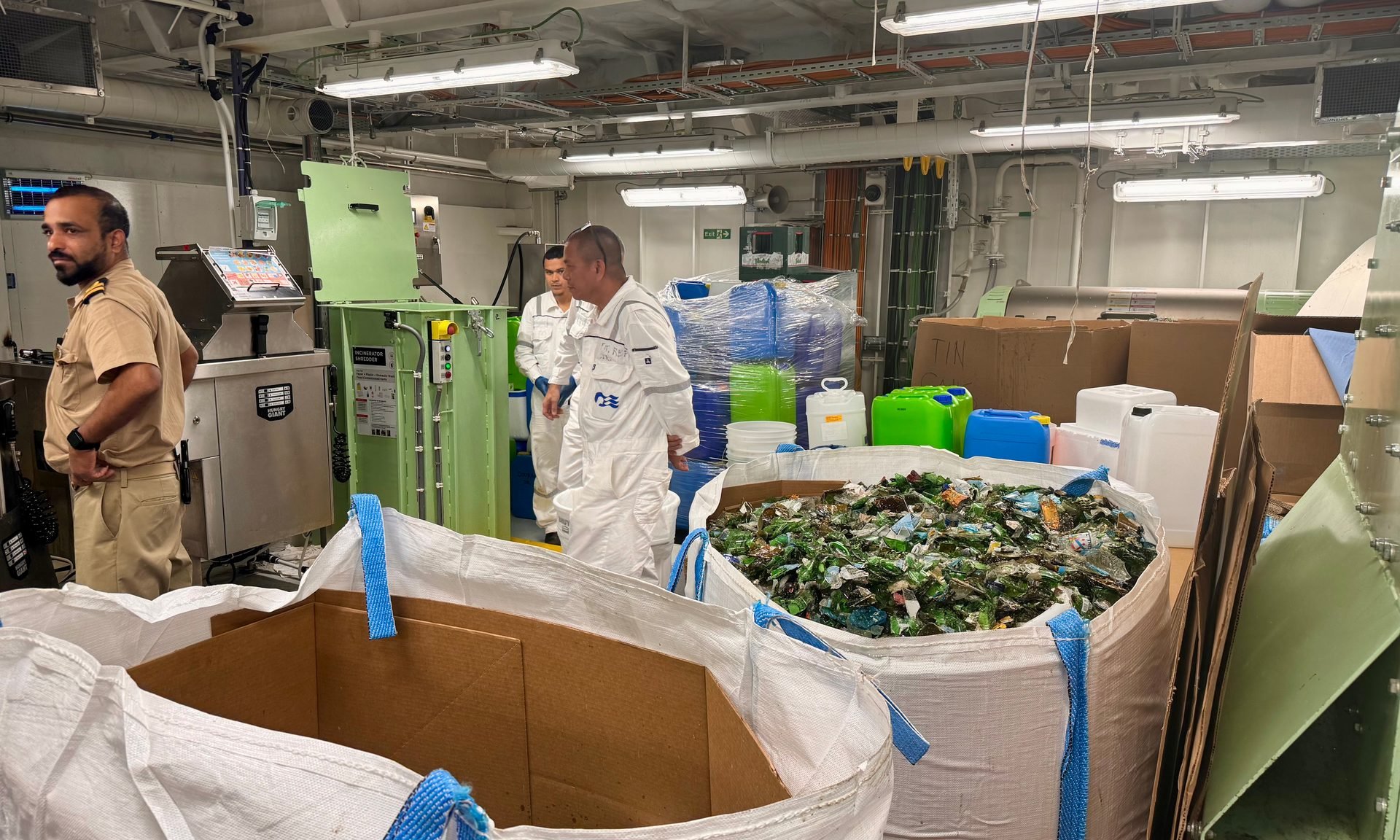
Another big reason why Princess stood out in NerdWallet's rankings is its commitment to sustainability. Princess has achieving ISO 14001 Environmental Management System certification and pioneering shore power connections to reduce emissions at port. Its newest line, the Sun Princess, launched in late 2024 and is powered by LNG fuel technology.
Compared with food on competitors like NCL or Royal Caribbean, Princess elevates dining with higher-end menus and presentation — without crossing into the all-inclusive pricing of a luxury line.
Drawbacks when sailing with Princess
To be clear, Princess is definitely not for everyone.
- Families with kids will likely find Princess too sedate. Without waterparks or cartoon mascots, children can feel bored compared to sailing with Royal.
- Pricing is higher than MSC or Carnival, so it can’t claim the best-value title.
- Luxury-minded travelers will still prefer Regent’s all-inclusive perks.
» Learn more: Best credit cards for cruises
Best cruise lines for luxury travelers: Regent Seven Seas Cruises
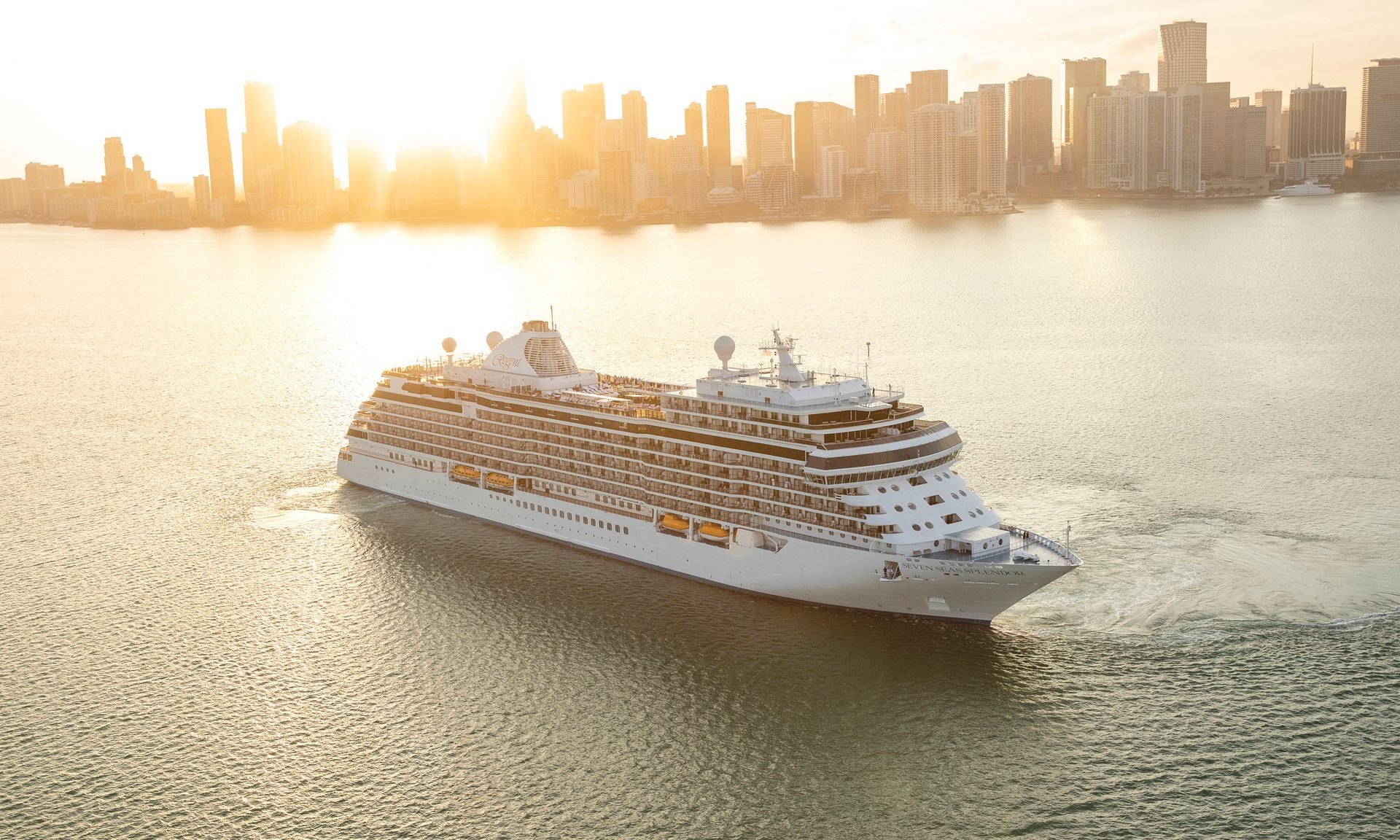
Why it wins: Truly all-inclusive pricing and opulence.
When it comes to luxury, Regent Seven Seas Cruises stands in a league of its own. With a fleet of six all-suite ships, Regent offers an all-inclusive experience that covers everything from gourmet dining to curated shore excursions. This seamless approach ensures guests can focus entirely on relaxation and indulgence without worrying about hidden costs.
Accommodations aboard Regent ships are nothing short of extraordinary. Each suite features private balconies, walk-in closets and marble bathrooms, providing a home-away-from-home experience that rivals five-star hotels. And that's not all. You'll also get a dedicated attendant, an in-suite minibar and a separate sitting area.
Oh, and if you want to get really fancy, consider upgrading to "the most exclusive address at sea" — the Regent Suite. It features a 4,000-square-foot stateroom with top-notch amenities. These include a private car and driver in every port, an exclusive private dining experience and an in-suite spa with unlimited treatments.
Dining is equally impressive. When you dine aboard a Regent cruise, you'll experience world-class chefs as well as sommeliers to pair your wine to your meal. Top venues include Chartreuse (offering exquisite French cuisine) and Prime 7 (serving perfectly crafted steakhouse classics).
Regent’s itineraries span over 450 destinations worldwide, with shore excursions designed to immerse guests in local cultures and histories. When you’re not out exploring a new port of call, you can take cooking classes, book a spa day or fitness class, enjoy evening entertainment or gamble at the casino, among other activities.
While competitors like Silversea or Seabourn offer similarly small ships and high-end touches, Regent's pricing includes far more — and the service quality delivers on the promise. For discerning travelers who demand the best, Regent Seven Seas Cruises delivers an unmatched level of luxury and exclusivity.
Drawbacks when sailing with Regent Seven Seas
The biggest drawback here is price. Anyone who might scrutinize the value of every dollar should absolutely skip this cruise line. Here are some other considerations to make before booking:
- Accessibility: Prices are steep, often 5–10 times the cost of a mainstream cruise.
- Entertainment is elegant, but lacks the flash of Royal or the Broadway shows on NCL.
- Not family-focused: while children are welcome, Regent isn’t designed with them in mind.
» Learn more: Is cruise travel insurance worth the cost?
Best value cruise line: MSC Cruises
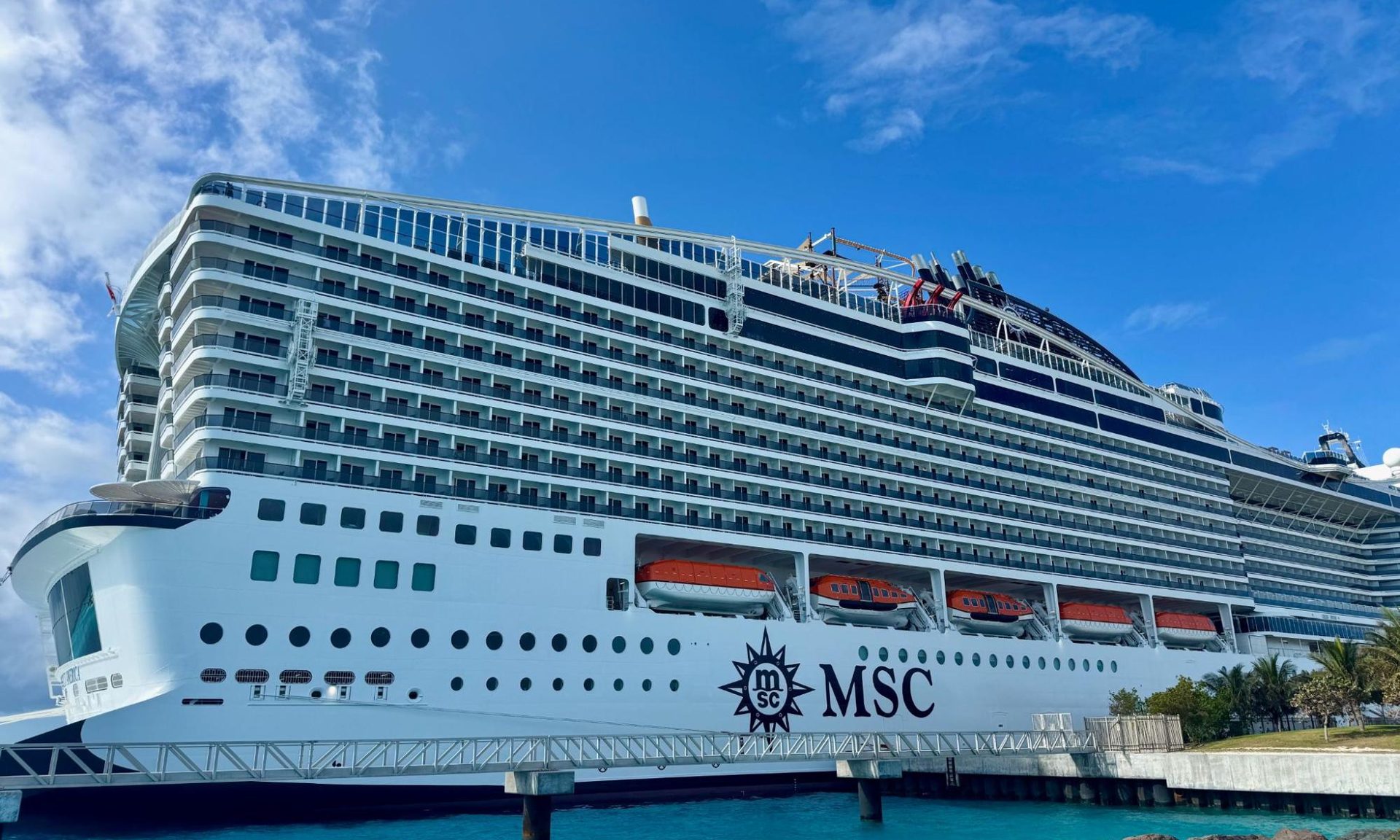
Why it wins: Affordable fares, new ships, and luxury-style perks — at lower prices without feeling "budget"
MSC Cruises often comes in hundreds of dollars cheaper than its competitors, and yet it operates some of the newest, most visually stunning ships at sea. The MSC World America, which launched in 2025, features seven “districts” that feel like cities unto themselves, along with roller coasters, water parks, and gourmet dining.
The brand’s European flair shows in everything from the ship design to the gelato carts. And while base fares are low, MSC allows guests to splurge selectively — whether it’s buying into the exclusive Yacht Club luxury enclave or ordering à la carte espresso drinks at Coffee Emporium.
Compared with budget lines like Carnival or Costa, MSC offers a more refined onboard experience — especially in newer ships — at surprisingly competitive prices.
Drawbacks when sailing with MSC
With a value cruise line inherently comes some cost-cutting measures that end up reflective in your service. Here are a few drawbacks to keep in mind:
- Entertainment is fun, but not on the same level as Royal’s AquaDome or NCL’s Broadway shows.
- Service can be inconsistent, and food quality doesn’t always match what you’d find on Princess or NCL.
- It’s not as strong for American families — its European flair and less polished service can feel unfamiliar to U.S. travelers.
Why some other cruise lines didn’t make the cut
Here are some of the other biggest names in cruises that we considered:
Disney Cruise Line: Once the gold standard for families, Disney has priced itself out of reach for many. Rising upcharges and base fares make it hard to justify when Royal delivers equally family-friendly magic for less.
Holland America: Excellent for older travelers who want culture over chaos, but Princess offers better food and design upgrades for a slightly higher fare.
Carnival Cruise Line: Known for being fun and affordable, but ships can feel dated and rowdy compared to MSC’s modern vibe.
Seabourn and Silversea: Both excellent luxury lines, but Regent’s inclusivity edges them out for the top luxury spot.
How to choose the best cruise line for your next trip
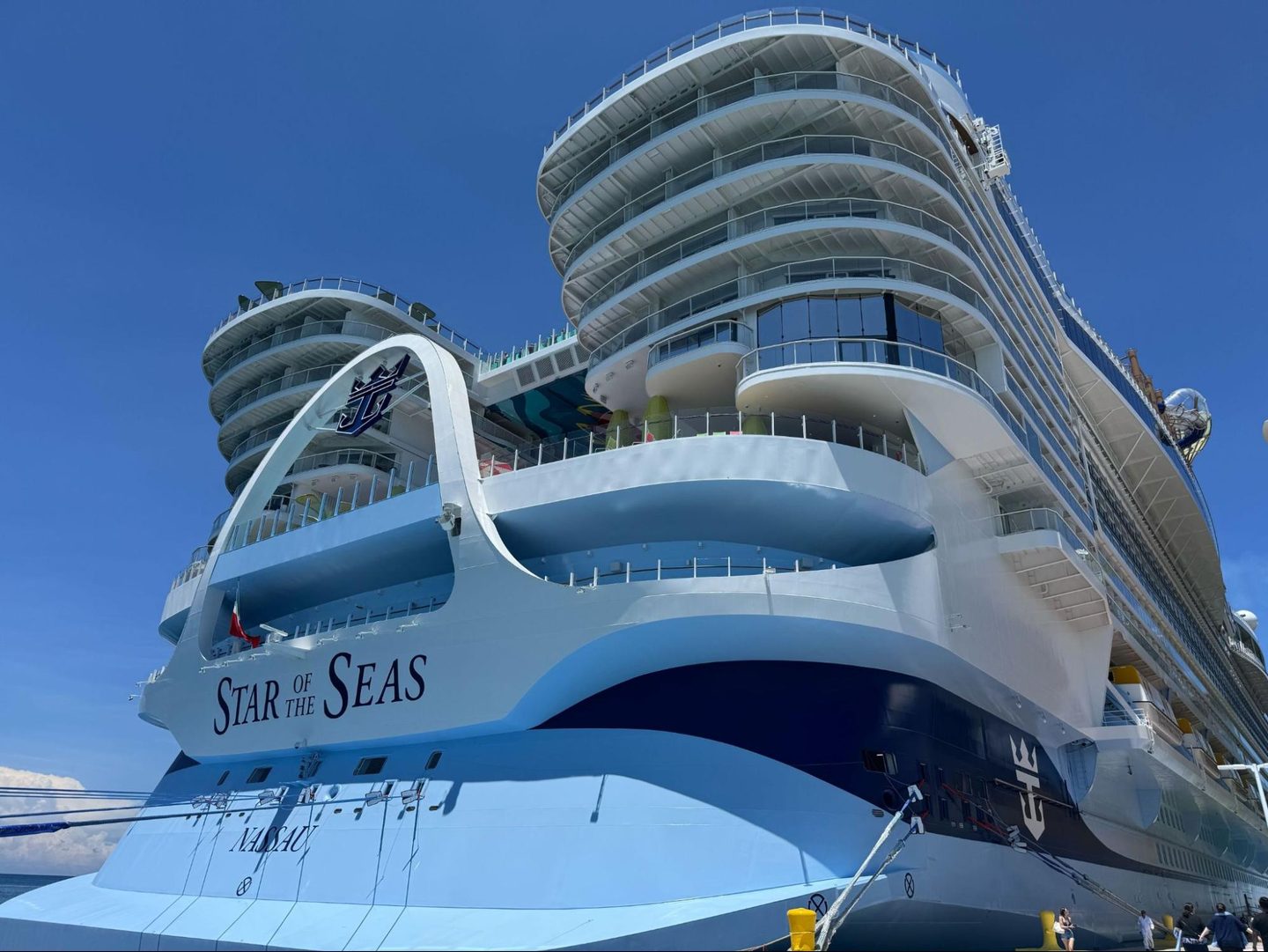
Finding the best cruise line isn’t just about picking the flashiest ship — it’s about finding the one that fits your travel style, budget and goals. Foodies might gravitate toward Princess. Budget-conscious travelers who still want style will find MSC appealing. Families can save money (without sacrificing quality) by choosing Royal Caribbean over Disney. And if you want to splurge, Regent delivers the most seamless luxury experience afloat.
Before you book, check for credit card perks and travel portal deals. Programs like Voyages by Chase, AmEx Fine Hotels + Resorts, AAA and Costco Travel often include extras like onboard credit, free specialty dining or even cabin upgrades — perks that can make your sailing feel even more rewarding.
How to maximize your rewards
You want a travel credit card that prioritizes what’s important to you. Here are some of the best travel credit cards of 2026:
- Flexibility, point transfers and a large bonus: Chase Sapphire Preferred® Card
- No annual fee: Wells Fargo Autograph® Card
- Flat-rate travel rewards: Capital One Venture Rewards Credit Card
- Bonus travel rewards and high-end perks: Chase Sapphire Reserve®
- Luxury perks: American Express Platinum Card®
- Business travelers: Ink Business Preferred® Credit Card
Article sources
NerdWallet writers are subject matter authorities who use primary,
trustworthy sources to inform their work, including peer-reviewed
studies, government websites, academic research and interviews with
industry experts. All content is fact-checked for accuracy, timeliness
and relevance. You can learn more about NerdWallet's high
standards for journalism by reading our
editorial guidelines.
On this page
- Best overall cruise line: Norwegian Cruise Line (NCL)
- Best cruise line for families: Royal Caribbean International
- Best cruise line for foodies and older adults: Princess Cruises
- Best cruise lines for luxury travelers: Regent Seven Seas Cruises
- Best value cruise line: MSC Cruises
- Why some other cruise lines didn’t make the cut
- How to choose the best cruise line for your next trip
Limited Time Only: Earn $1,000 Toward Travel!
Capital One Venture Rewards Credit Card 
Travel

For a limited time, the
Capital One Venture Rewards Credit Card is offering new cardholders an especially rich bonus: Enjoy $250 to use on Capital One Travel in your first cardholder year, plus earn 75,000 bonus miles once you spend $4,000 on purchases within the first 3 months from account opening - that’s equal to $1,000 in travel!
More like this
Related articles







